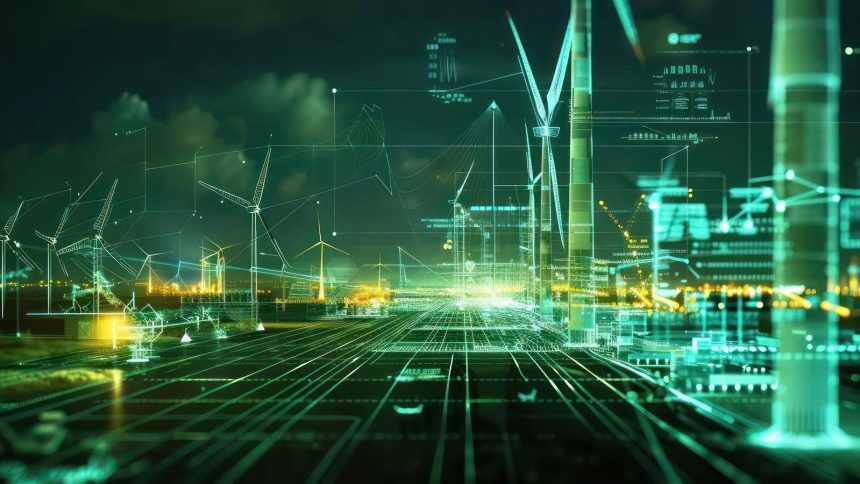Shell’s strategic embrace of artificial intelligence is revolutionizing the energy sector, propelling the company towards a future of cleaner, more efficient energy production and distribution. AI is not viewed as a panacea but as a powerful catalyst accelerating the energy transition and significantly reducing carbon emissions. This transformative journey is evident across Shell’s operations, from accelerating complex scientific simulations to empowering employees with AI tools and reimagining the very structure of future power grids.
The impact of AI on scientific simulations is particularly profound. By collaborating with NVIDIA, Shell has achieved unprecedented speeds, running complex energy simulations up to a million times faster than traditional methods. This dramatic acceleration allows Shell to model and analyze scenarios previously impossible due to computational limitations. For example, studying carbon dioxide storage in subsurface reservoirs, a critical component of carbon capture and storage, is now achievable at speeds 100,000 times faster than conventional techniques. This breakthrough facilitates rapid evaluation of various geological formations, injection rates, and pressures, enabling more informed decisions and quicker progress towards net-zero emissions targets.
Shell’s application of AI extends far beyond theoretical simulations, influencing real-world operations across the organization. Through its Visual Remote Sensing (VERS) program, Shell leverages AI to analyze remote sensing and satellite data, identifying potential biofuel sources and optimizing investments in clean energy. Furthermore, AI-powered machine vision systems are deployed across Shell’s facilities, monitoring equipment performance, detecting emissions, and significantly enhancing safety protocols. These systems, often operating at the edge with limited internet connectivity, ensure real-time monitoring of worker safety equipment, demonstrating the practical application of AI in challenging environments.
Crucially, Shell is democratizing AI within its workforce, empowering thousands of employees to develop their own AI solutions. This “citizen development” program is underpinned by a robust framework ensuring security and compliance. A tiered zoning system categorizes AI applications based on risk and complexity, allowing for flexible development of low-risk applications while maintaining rigorous oversight for more sensitive projects. This initiative has fostered a thriving AI community within Shell, with over 12,000 members and a comprehensive digital skills program accessible to all employees. By empowering frontline workers with AI tools, Shell harnesses the expertise of those closest to the challenges, fostering innovation and problem-solving from within.
The energy landscape is undergoing a fundamental transformation, shifting from centralized power plants to a distributed network of renewable energy sources. This shift presents immense complexities in managing the future power grid, and AI is poised to play a crucial role. As millions of energy sources and storage points replace a relatively small number of traditional power plants, sophisticated AI systems are essential for effective management and optimization. Shell recognizes this paradigm shift and is actively developing AI solutions to navigate the complexities of this evolving energy ecosystem.
Shell’s AI initiatives extend beyond operational improvements to encompass fundamental research in critical areas such as carbon capture and storage, biofuels, and electric vehicle infrastructure. AI-powered geospatial analysis is employed to optimize the placement of EV charging stations and identify new biofuel sources from crops and waste products. Furthermore, Shell is leveraging the power of generative AI and large language models to unlock decades of accumulated scientific knowledge, accelerating research and development cycles. This approach empowers researchers to design more effective experiments and accelerate progress in developing clean energy solutions. Data centers are also envisioned as future energy hubs, playing a catalytic role in the broader electrification of the energy sector.
Shell’s multifaceted approach to AI integration positions the company as a leader in the energy transition. By embracing AI across its operations, from accelerating scientific research to empowering its workforce and reimagining the future power grid, Shell demonstrates the transformative potential of this technology. These initiatives not only optimize existing infrastructure but also pave the way for the development of cleaner and more sustainable energy solutions, shaping a future where AI plays a pivotal role in meeting the world’s growing energy demands while mitigating the impacts of climate change. As AI technologies continue to mature, Shell’s forward-thinking approach promises to further accelerate the transition towards a more sustainable energy future.



